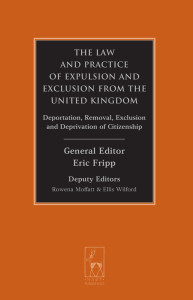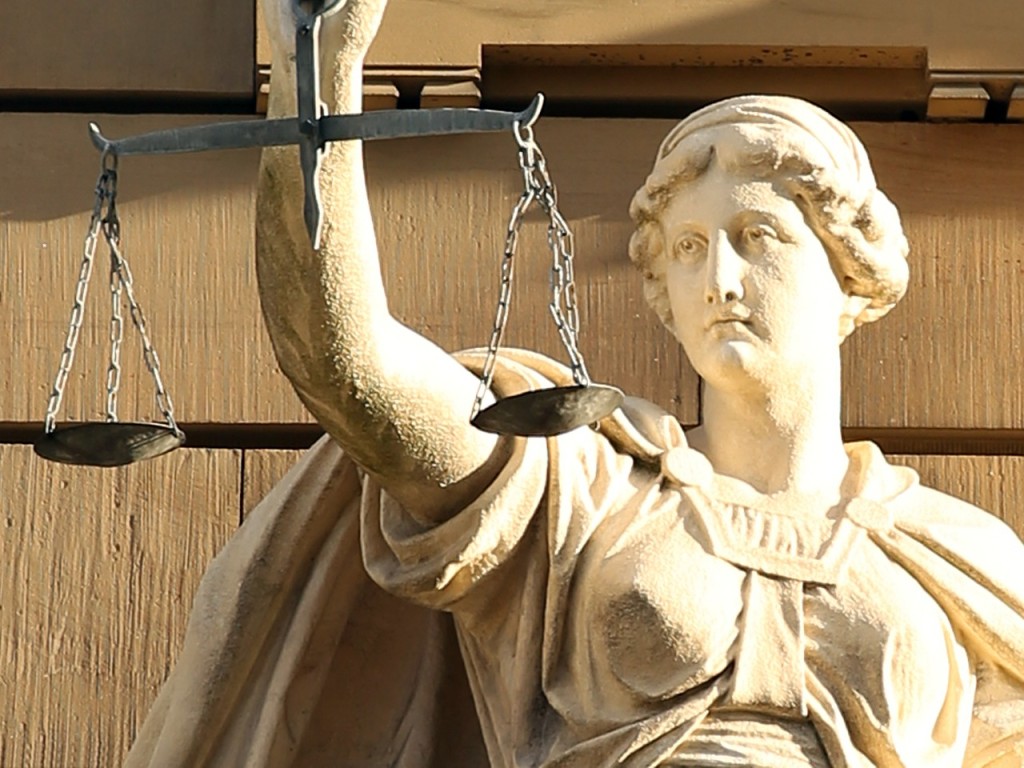- BY Colin Yeo

The Law and Practice of Expulsion and Exclusion from the United Kingdom
THANKS FOR READING
Older content is locked

A great deal of time and effort goes into producing the information on Free Movement, become a member of Free Movement to get unlimited access to all articles, and much, much more
TAKE FREE MOVEMENT FURTHER
By becoming a member of Free Movement, you not only support the hard-work that goes into maintaining the website, but get access to premium features;
- Single login for personal use
- FREE downloads of Free Movement ebooks
- Access to all Free Movement blog content
- Access to all our online training materials
- Access to our busy forums
- Downloadable CPD certificates
 Last night I was invited to the launch for a new practitioner text edited by Eric Fripp, The Law and Practice of Expulsion and Exclusion from the United Kingdom: Deportation, Removal, Exclusion and Deprivation of Citizenship. There were a number of excellent speakers lined up and so I thought I’d take some notes and turn them into a blog post. What follows are my notes on the gist of some of what was said. I may have embellished the actual words a little in the process, so my write up cannot be taken as quotation for the various speakers.
Last night I was invited to the launch for a new practitioner text edited by Eric Fripp, The Law and Practice of Expulsion and Exclusion from the United Kingdom: Deportation, Removal, Exclusion and Deprivation of Citizenship. There were a number of excellent speakers lined up and so I thought I’d take some notes and turn them into a blog post. What follows are my notes on the gist of some of what was said. I may have embellished the actual words a little in the process, so my write up cannot be taken as quotation for the various speakers.
I was also very kindly provided with a review copy. I have already found it helpful in two different cases I was working on. One concerns the scheme of the revocation of deportation order rules and the other is deception in obtaining British nationality and the difference between nullification and revocation. It is not really possible for a lawyer to give a book higher praise than to say that it is genuinely useful and provides new insight, which is what I have found.
The structure of the book is interesting and by including extensive reference to the international instruments that impinge on this area of interaction between rights and state power Eric encourages us to be more imaginative in our approach. This can only be a good thing given that current Government is intent on greater and greater use of these newly acquired powers and the assertion of individual rights has been markedly ineffective so far.
I also enjoyed reading up on the history and background to developments in this area of law and picked up some interesting bits and pieces of information I’ve stored away for a rainy day, and Eric’s excellent preface is full of very quotable text.
You can take a look at the contents page over at the Hart website and can buy via Hart or via Amazon. Many of the attendees were picking up copies last night and I think the book is going to have a significant impact on jurisprudential thinking.
Now, on to the speakers…
Lord Hope
Lord Hope, who also contributed a foreword, began by saying that the book breaks new ground by focussing solely on the two areas of (1) expulsion and exclusion and (2) deprivation or denial of British citizenship. These are subjects that deserve special attention in their own right and highlight the sharp end of state power.
Like any legal text, the book is not designed to be read from cover to cover, even if the subject matter is not at heart that dissimilar to Wolf Hall and Bring Up The Bodies. The book highlights the uncomfortable tension between on the one hand what the Executive would like to be able to do and on the other the constitutional law principle that no discretion should be so unconstrained as to be arbitrary.
Theresa May’s statement that citizenship a privilege not a right is chilling and as Eric says this way of thinking suggests that citizenship is possessed on the forbearance of the Executive. This is particularly pertinent on the very day that Parliament was debating exclusion of British citizens from their own country if returning from carrying out alleged terrorist activities abroad.
Eric Fripp
 The ease with which deprivation can be carried out following amendments to nationality law in 2006 changes the nature of citizenship and changes the balance of power between the individual and the State. Being given citizenship might be a privilege but retaining it should not be; as Nicholas Blake QC has said, citizenship protects individuals holding that status from the extensive intrusion into the lives of non citizens that is possible under immigration legislation.
The ease with which deprivation can be carried out following amendments to nationality law in 2006 changes the nature of citizenship and changes the balance of power between the individual and the State. Being given citizenship might be a privilege but retaining it should not be; as Nicholas Blake QC has said, citizenship protects individuals holding that status from the extensive intrusion into the lives of non citizens that is possible under immigration legislation.
The importance of nationality law is matched by indifference towards it. Redesignating it as “citizenship law” might help with that a little, as might more engagement with the political theory behind exclusion and deprivation. The very idea of expulsion is at odds with notions of social contract widespread in political theory. Even Hobbes might have quailed at the idea that Leviathan might sometimes amputate his constituent body parts.
Professor Gibney
Expulsion and exclusion are huge social and political issues and of huge import to individuals. He spoke of his own exclusion from the US some years previously due to administrative error and missing the premature birth of his own son and emphasised the effect on individuals and the coercive hand of the state. Any book that serves to clarify the law in this fraught area is clearly to be welcomed.
 Deprivation of citizenship was moribund between the 1960s and mid 2000s other than use in case of odd Russian spy. The power has come back to life in recent times, becoming a new site in the State’s fight against terrorism. The power of deprivation transforms a citizen into an alien who is therefore vulnerable to expulsion; a truly transformative state power akin to execution. Rather than physical death it is the civic death of banishment.
Deprivation of citizenship was moribund between the 1960s and mid 2000s other than use in case of odd Russian spy. The power has come back to life in recent times, becoming a new site in the State’s fight against terrorism. The power of deprivation transforms a citizen into an alien who is therefore vulnerable to expulsion; a truly transformative state power akin to execution. Rather than physical death it is the civic death of banishment.
Deprivation undermines the idea that citizenship is an equal status; it only applies to some citizens, not all. Only dual nationals and naturalised citizens can be deprived of their citizenship. No matter how we try to present it, the provisions send the message that some people’s citizenship is more valuable than that of others; some are first class citizens and some are second class. Further, it is usually ethnic minorities who fall into the second class group, making it even more invidious.
Voltaire criticised banishment on the grounds that it throws into our neighbour’s yard the stones that incommode us in our own. The targets of this power are products of our society, albeit perverse ones, moulded by our own practices and interactions and banishing them to a state that is often weaker and more fractured is to act unjustly towards other states as well as the erstwhile citizens themselves. It permits us to overlook the forces within our own society that created these individuals in the first place.
The powers are expansionist. Originally, when introduced in 2002, the power was tightly constrained when enacted in 2002 and promises were made to use the power wisely. After the London bombings in 2005 the standard for deprivation was lowered merely to ‘conducive to the public good’, subjecting British citizens to the same standard for whether a non citizen should be deported. Even then only a handful of citizens lost their citizenship under the Blair and Brown governments, but that changed radically under the present Coalition government when there was a marked increase and deprivation almost always took place when citizens were abroad, severely limiting access to legal challenges. Now, citizens can even be made stateless.
Even those who consider deprivation to be legitimate should be concerned at the exercise of this power. The direction of travel is continual expansion of this power, which seems likely to continue.
Nuala Mole
Describing the work as a “beautiful, affordable, mustard coloured book”, she emphasised the important things for any practitioner (other than colour): the footnotes only take up an inch at the bottom of the page, the font size is readable, the index works and it isn’t too heavy.
She spoke on the UK’s other ‘ins and outs’, referring to the UK’s ambivalent relationship with EU and international law, one of the other themes running through Eric’s book. She in particular pointed out that the UK has cheerfully signed up to all the UN conventions but there are immigration reservations to most of these.
Hugh Southey
The state of the case law on deprivation of citizenship is currently the Court of Appeal case of G1, which is that EU law does not constrain deprivation of citizenship unless the individual is exercising rights of free movement. This is being considered by the Supreme Court at the moment so we shall see what comes of it. At things stand, deprivation can take place even where a person has left the UK so cannot participate in their appeal, and anyway the appeal takes place in SIAC so they cannot see the evidence against them.
EU law suggests there is a right to a fair hearing and the EU should and probably would be concerned with deprivation of citizenship by Member States because it also deprives the individual concerned — or the group of citizens in the context of some sort of group deprivation — of their fundamental status as a Citizen of the Union.

Stephanie Harrison
Stephanie spoke on the reasons why deprivation and exclusion have become so popular with the Executive. There is recognition that the courts require that there is judicial scrutiny of exercise of domestic counter terrorism powers. The security services do not like it nor do other manifestations of the State, and the solution to that has been the use of exclusion powers. Once a person is excluded from the UK, there is effective exclusion of judicial oversight. This is a deliberate policy that the Government has defended in court.
L1 is a good example: the UK openly admitted that it deliberately waited until he and his family left for a short visit abroad with his family when acted to deprive him of citizenship and exclude him in order to reduce judicial oversight. G1 provides another example of exclusion whilst abroad where it was very hard to conduct his case from Sudan and his case was dismissed. One of reasons was it would frustrate the “operational purposes” of protecting national security and frustrate the decision to exclude him from the UK; if he were allowed back in he would be able to rely and perhaps succeed on Article 3 grounds that he should not be removed to Sudan.
The removals deliberately prevent those concerned from relying on their fundamental rights, even where they might face breaches of Article 3, the right to freedom from torture or inhuman or degrading treatment or punishment. These are people who were until the decision in question British citizens.
It is impossible to do justice in cases where the client is outside the jurisdiction, particularly where there are closed material procedures in place in SIAC. That is of course the whole point of the State’s reliance on these powers.

